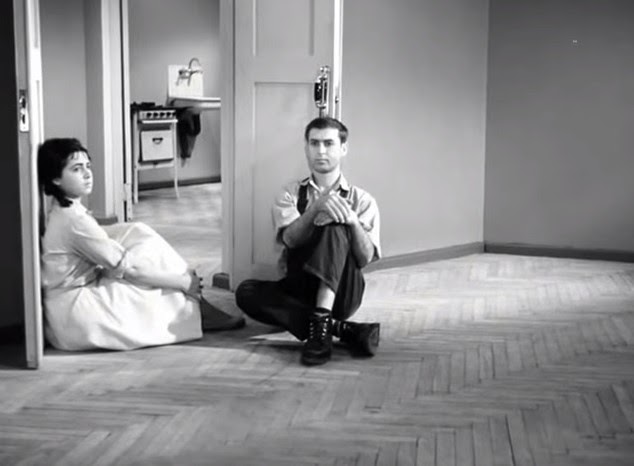It’s been a while – what made me decide to try and start maintaining this blog again?
Could it have been all that extra lockdown free time?
Not exactly, you’ll find out soon enough what I did with that period (threat).
The news we’re getting a Fisherman’s Friends 2?
Delighted as I am for another opportunity to ogle James Purefoy in knitwear, it wasn’t that.
Maybe some thrilling new development emerging from one of Disney’s many tentacles?
Nah – enthusiasm or no, it’s somewhat embarrassing to see this blog has been languishing with my cheerful take on Endgame on the front page. I re-read that post in a state of bemusement recently – I don’t think I’ve once spent more than two seconds thinking about that film since then. I hear Wandavision is good – I’ll try to stir myself to watch it some time. But Thor: Love and Thunder is really the only forthcoming Marvel title I’m interested in, and as for Star Wars… how can the same person who wrote thousands of words justifying her enjoyment of the spectacle of The Last Jedi not have made a single post about The Rise of Skywalker? It’s not so different from my experience with the prequels, really – from enthusiastic defence of The Phantom Menace, even as I knew I didn’t believe my own arguments, to not even bothering to see Revenge of the Sith for years after its release.
Sometimes I notice how hollow the enthusiasm rings a few days/months/years after the event. Usually means I’m ready for a cultural reset and need some time off the blockbusters.
If that sounds a bit pretentious, don’t worry – I’ve barely got started.
What’s led me back here is all my overflowing thoughts about some of the films I’ve been watching recently and a curiosity to see if I can articulate what interests me in them and what patterns I’ve been seeing. This has been about as far from the Hollywood blockbuster scene as imaginable – I’m talking arthouse cinema from the Caucasus, baby.
However, I still like to keep a record still of what media I’ve been consuming – influences, interests, annoyances, whatever. It probably won’t be an exhaustive list – there’s bound to be stuff I’ve forgotten watching or reading since 2019, and some things I probably have no opinions on.
- But here’s a summary of the rest of 2019, as I remember it.
- Books that I read in 2020 (I was not a voracious pandemic reader, as you will see) [still in draft].
- Cinema and other pre-lockdown activities in 2020. [still in draft]
Or, if you prefer, there’s a list of titles, linked to the posts concerning them, see below.
As for the rest of 2020/2021 so far:
So much of what I’ve been reading, watching and listening to over the past year is a direct result of seeing one film – a film I heard of by chance from a blog that doesn’t post often these days, that I was probably only able to watch because it couldn’t get a cinema release due to the pandemic, and was available from Curzon Home Cinema. I rented it on March 30 last year and watched it every day for the three days I had it – uncertain fascination turning rapidly into the decision to let myself fall hard in love. It’s not a perfect film, but it’s astonishing given the circumstances under which it was made, and it is an important film, though easily and unfairly lumped in with other ‘gay coming of age’ cinema. It’s also a gateway drug to the Georgian language, which has been my lockdown hobby (along with the sourdough and the gardening, the hair-dying and the new dog).
Here’s my review of And Then We Danced/და ჩვენ ვიცეკვეთ, and the film features in my other posts on Georgian cinema here, here and here [still in draft]. As well as leading me to watch movies from Georgia and about Georgia, it encouraged me to watch more global cinema [still in draft] and more queer cinema [still in draft]. Though I do still, occasionally, watch less heavy or obscure stuff – that’s gathered in a post here [still in draft].
2019
Mr President (book)
Embassytown (book)
Wreck-It Ralph 2 (film)
Ready or Not (cinema)
Knives Out (cinema)
Rise of Skywalker (cinema)
2020
Ipswich players panto
Gorky Park (book)
Booksmart (film)
Vikingdom (film)
Under the Pendulum Sun (book)
To Calais, In Ordinary Time (book)
The Diaries of Frannie Langton (book)
Kiki’s Delivery Service (film)
King Arthur (film)
Conversations With Friends (book)
The Reavers (book)
Kate Butch (live)
The Murder in the Red Barn (theatre)
1917 (cinema)
David Copperfield (cinema)
And Then We Danced/და ჩვენ ვიცეკვეთ (film)
Portrait de la jeune fille en feu (cinema)
Sam Lee (live)
The Lighthouse (cinema)
The Captive Prince and Prince’s Gambit (books)
Shubh Mangal Zyada Saavdhan (film)
Ek Ladhi Ko Dekha Toh Aisa Laga (film)
Two queer Indian shorts (films)
A Girl Walks Home Alone at Night (film)
Anna Karenina (film)
Frozen 2 (film)
Chess of the Wind (film)
Wolkwalkers (film)
Monanieba/მონანიევბა [Repentance] (film)
Dancing in Odessa (book)
The Tradition (book)
Six Georgian Poets (book)
Tomorrow Never Dies (film)
The Literature Express (book)
Me var Beso/მე ვარ ბესო [I am Beso] (film)
Chemi Bednieri Ojakhi/ჩემი ბედნიერი ოჯახი [My Happy family] (film)
The Man Who Surprised Everyone (film)
In Bloom/გრძელი ნათელი დღეები (film)
March For Dignity (film)
No (film)
The Pear Tree (book)
Casablanca (film)
Singin’ in the Rain (film)
The Sound of Music (film)
Ghori/ღორი [Pig] (film)
Marilivit tetri/მარილივით თეთრი [Salt White] (film)
2021
Post Mortem (film)
Dasatsqisi/დასაწყისი [Beginning] (film)
Ashik Kerib (film)
The Colour of Pomegranates (film)
Udzinarta Mze/უძინართა მზე [Sun of the Sleepless] (film)
Magdana’s Donkey/მაგდანას ლურჯა (film)
I Wish Summer Would Never Come Again/ნეტავ აღარასოდეს მოვიდეს ზაფხული (film)
The Plank (film)
Natvris xe/ნატვრის ხე [The Wishing Tree] (film)
April/აპრილი (film)







You must be logged in to post a comment.